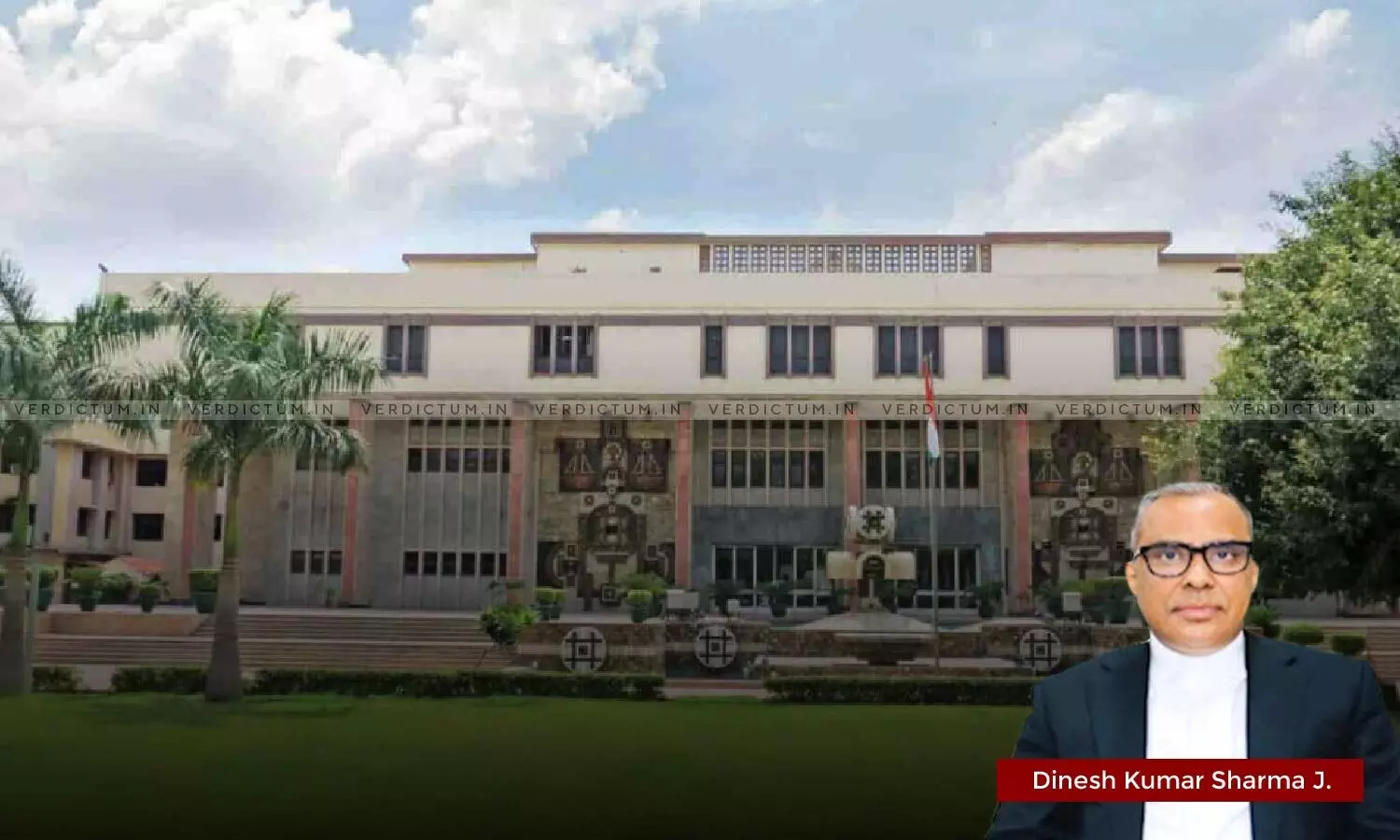
To Be Punished U/s. 3 Of PMLA, Person Dealing With Proceed Of Crime Must Have Knowledge That It Is Tainted Money: Delhi HC
 |
|In a recent judgment, the Delhi High Court has observed that for a person to be punished under Section 3 of the Prevention of Money Laundering Act, 2002, there has to be some substantial link between the money received and criminal activity relating to the scheduled offence which can be attributed.
The Single Judge Bench of Justice Dinesh Kumar Sharma held "A bare perusal of the Section 2 (u) of the Prevention of Money Laundering Act, 2005 which provides for the definition of “proceeds of crime” indicates that it is the property derived or obtained, directly or indirectly which relates to criminal activity relating to a scheduled offence. Similarly in order to be punished under Section 3 of PMLA, It is necessary that person dealing with the “Proceed of crime” must have some knowledge that it is tainted money."
The Court was of the observation that in such cases of money laundering, it is always not possible to attain direct pieces of evidence neither they can be meticulously examined while considering a bail application. It was further observed that the Court cannot merely proceed on the basis of assumption, there has to be some substantial link between the money received and criminal activity relating to a scheduled offence which can be attributed to the petitioner.
The High Court was dealing with a Bail Application filed by one Vijay Agarwal, an Indore-based real estate developer who was alleged to be actively involved in a case of Money Laundering. Senior Advocate Sidharth Aggarwal appeared for the Petitioner while Advocate Zoheb Hossain appeared for the Enforcement Directorate.
The Court was of the finding that "The offence of money laundering can be seen as a running-goods train where the bogey keeps on adding. The question to be determined is whether the bogey which is attached knew the culpability of the bogey which had already been there."
The High Court while relying on the Judgment of Vijay Madanlal Choudhary stated that all properties recovered or attached by the investigating agency in connection with the criminal activity relating to a scheduled offence under the general law cannot be regarded as proceeds of crime. The property which has been derived must be directly or indirectly related to the criminal activity relating to the concerned scheduled offence.
It was further observed that it is not necessary that the property must have been directly acquired or derived if the property has been derived in lieu of or in exchange for the property which had been directly derived or obtained as a result of criminal activity relating to a scheduled offence, such property would also fall within the definition of proceeds of crime.
With the aforesaid facts and observation, the High Court stated that it cannot be said that the conditions provided under Section 45 impose-absolute restraint on the grant of bail.
Accordingly, the Court admitted the Petitioner on conditional bail on furnishing a personal bond in the sum of Rs.25,00,000/- (Rupees Twenty-Five lakhs) with two sureties of the like amount to the satisfaction of the trial court.
Cause Title: Vijay Agrawal Through Parokar v. Directorate of Enforcement [BAIL APPLN. 1762/2022]
Click here to read/download the Order